Under Friday’s soft morning light, around 50 people walked in and out of the Bonfire Memorial, prepared to preserve the 12 lives lost in the tragic 1999 Bonfire collapse.
Every November, Texas A&M students, alumni and community members gather at the Bonfire Memorial. While the collapse anniversary ceremony — held on Nov. 18 at 2:42 a.m., with the portals lit, “The Last Corps Trip” recited, and the names of the 12 read aloud — is well-known, another, quieter tradition takes place in the days leading up to it. In a smaller, lesser-known act of reverence, volunteers ranging from current A&M students to University of Texas alumni come together to clean the memorial. They wipe away the dirt and wear of the past year as they prepare the site for the solemn anniversary soon to come.
Under the guidance of Morgan Hayes, the University Art Galleries’ administrative assistant, and Amanda Neel, the J. Wayne Stark Galleries’ collections manager, the volunteers carefully and respectfully clean and care for this sacred ground.
Bonfire: Remembrance
Hayes and her coworker, Neely, arrived around 8 a.m., undeterred by the drizzly morning and somber gray clouds. The only color in the gray and bronze circle was the vibrant red roses, anonymously placed in the middle of each portal.
“We took a moment before we started anything and let the memorial be at peace before we started the cleaning process,” Hayes said. “The realization of what you are doing at this event is important, and you want to make sure everything is to the best standards.”
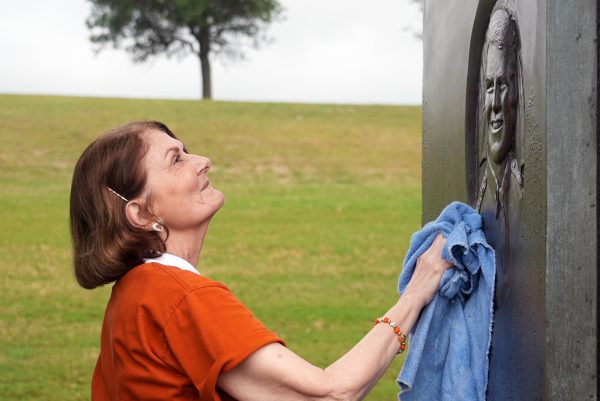
Hayes said the presence of so many volunteers significantly eased the work of cleaning and preserving the memorial. She said listening to loved ones share memories of those who have passed made the experience even more meaningful.
“This was personal in a way because my dad graduated a year before the accident and knew one of the people that passed away,” Hayes said. “To me, this is a very good way of preserving memory, and part of why we study history is to carry the past to the present.”
The gray and white pathways welcomed a diverse gathering: college students, community members and Texas alumni. None of the Longhorns present mentioned the upcoming A&M-Texas game, as the cleanup turned rivalry into camaraderie.
The Longhorns were represented by the Texas Exes, whose Brazos Valley chapter marked its second year participating in the event under the leadership of their president, Amy Vance. A current A&M employee and former UT student, Vance said that ever since she saw an email about the event her chapter has been a part of the cleanup process. She said the Bonfire collapse was a very emotional event, even for Longhorns, and it’s something she felt tied the two institutions together.
“For the past two years, seeing Longhorns is a surprise on other people’s faces,” Vance said. “For our chapter, cleaning was a way of honoring and giving back to students and young people who were out there to do something fun.”
Bonfire: Cleanup
Dawn dish soap and scrubbing brushes weren’t enough to preserve the solemn beauty of the memorial. Meticulous cleanup involved a series of careful tasks: picking up trash, spraying ant killer, pulling weeds, dusting out wasp nests, scrubbing the bronze walls and waxing the tall, curving portals. Each action is a labor of respect, carried out with precision to honor the space and the memories it holds.
“Cleaning helps safeguard this piece of art, and this was a large tragedy for the community because family members of the 12 are still alive, around and in town,” said Hayes. “We want to do our best to maintain the memory of their loved ones.”
Anthropology junior Rileigh Johnston was one of the many volunteers who began their morning by washing the portals. With each scrub, she said she would step back and take in the engraved words and reflect on the legacy sustained in each line.
“I washed the archways and stone and put a lot of thought and effort into waxing these memorials,” Johnston said. “I stopped to read the marble slabs, and the amount of effort poured into every person’s portal was inspiring, and it was important to clean the memorial because people deserve to see how much the victims were loved.”
As the collections manager, Neel played a crucial role in preserving these monumental memories. She said the gallery uses a unique soap called Orvus Paste, a gentle cleanser originally designed for horses. The soap is free from abrasive particles, which is essential to avoid damaging the patina on the bronze, particularly on the main portal section.
“We use specially designed brushes to prevent scratching and avoid power washing because the pressure can harm the granite,” Neel said. “These sculptures and monuments are more than just art — they hold the memories, stories and spirit of the people and moments they represent.”
By day’s end, a fresh layer of Trewax was applied to each portal, sealing in and shining the stories they embodied. This final step not only protected the panels from weathering but also enhanced their luster, ensuring they stood proudly, each surface reflecting the history built stone by stone.
“As the microfiber pads buff in the wax, it’s as though each statue is rejuvenated, ready to preserve these stories for another year,” Neel said. “This is important because it’s inviting future generations to connect with the past.”
Bonfire preservation wrap-up
As the day went by, the clouds started to show signs of rain, but the crew wasn’t worried as they finished cleaning the memorial, leaving it spotless in record time. Their careful efforts left the memorial gleaming — every bronze panel and marble slab radiated the care that was poured into the task.
“We are making a tradition of ourselves in a sense to remember the ones before us,” Neel said. “It is a tragedy, but it is important to not forget the ones that passed on.”
Every scrub, every layer of wax and every careful brushstroke helped keep their stories alive, ensuring that the memorial remained a lasting tribute to the fallen.
“I was young but alive when the Bonfire collapse happened, and I do remember the shock that went through the city and even the state,” Neely said. “Getting out there and taking care of it for me is just part of keeping the memory of those students alive and making sure in some way they’re still part of the Aggie family.”



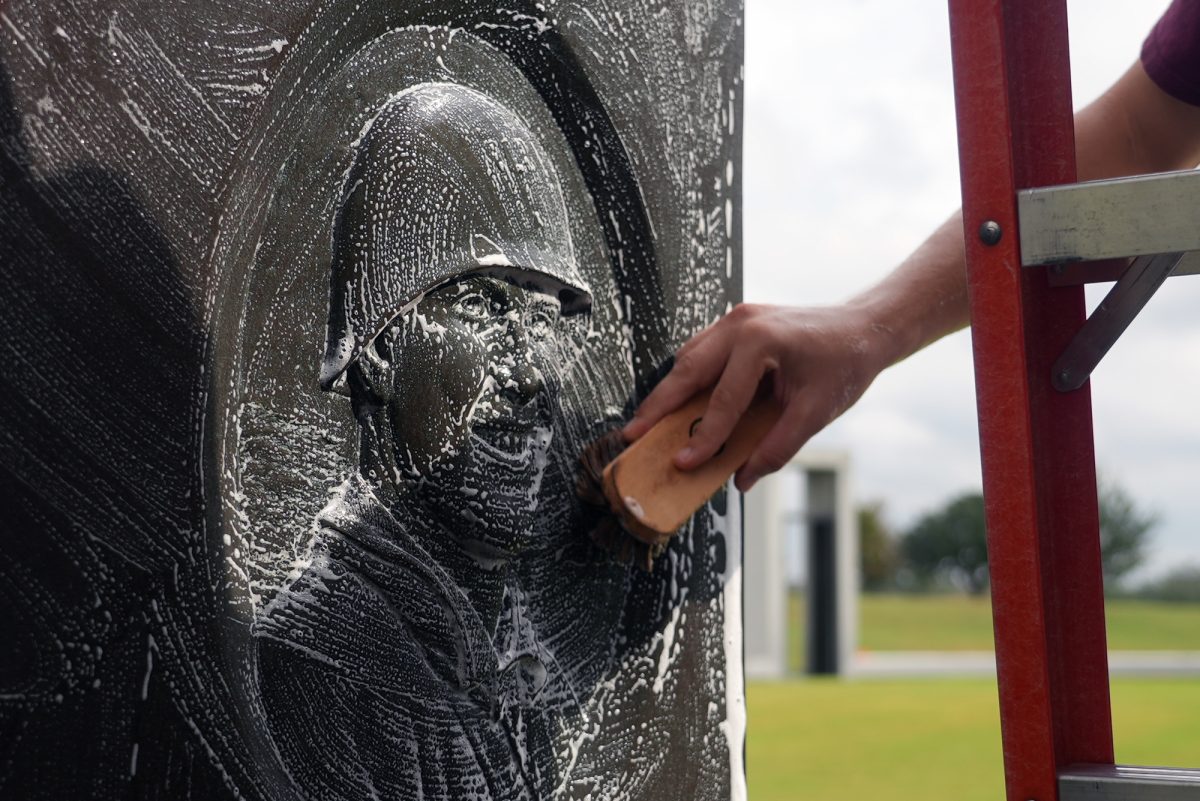



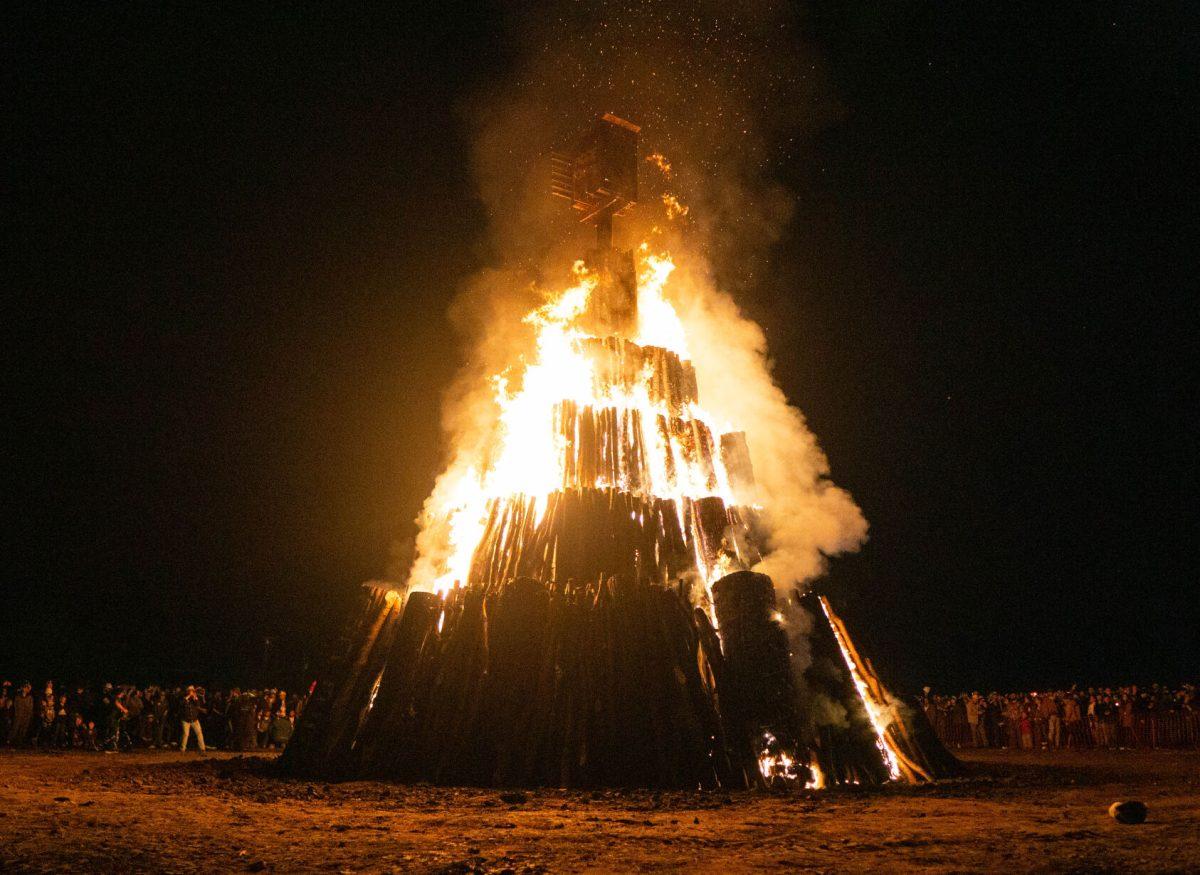
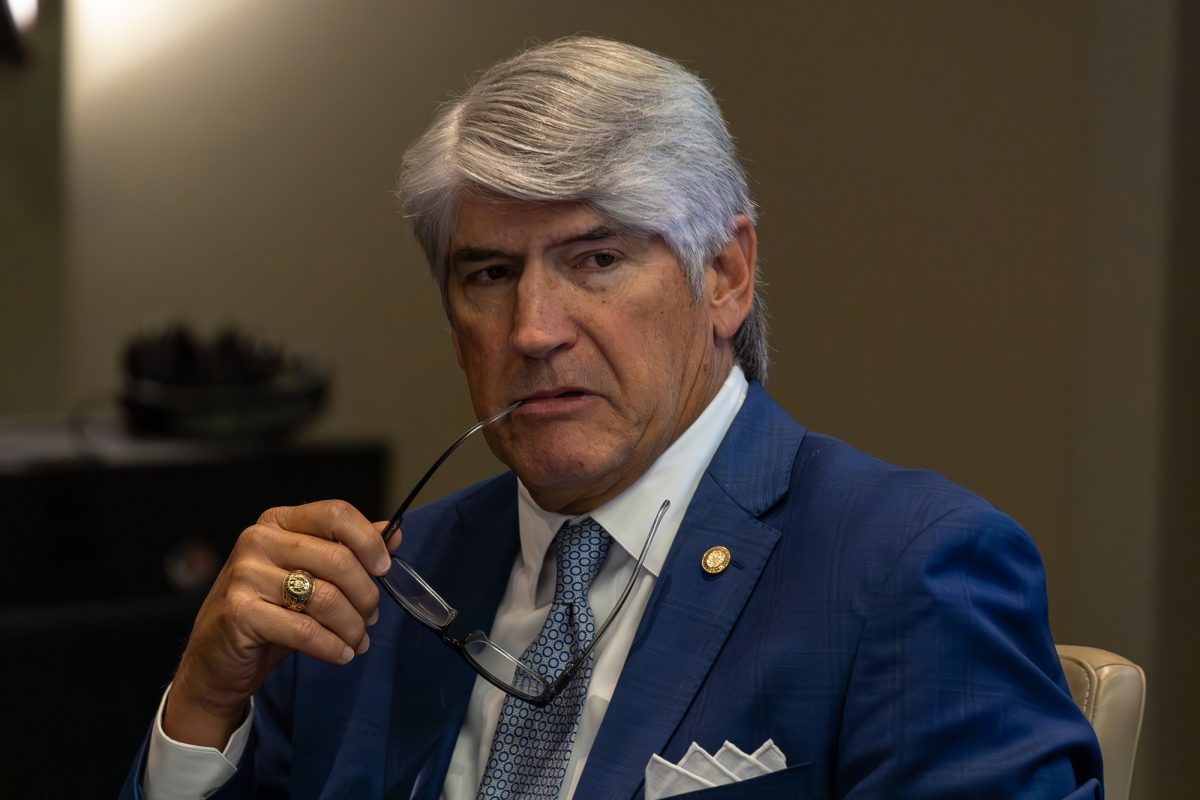

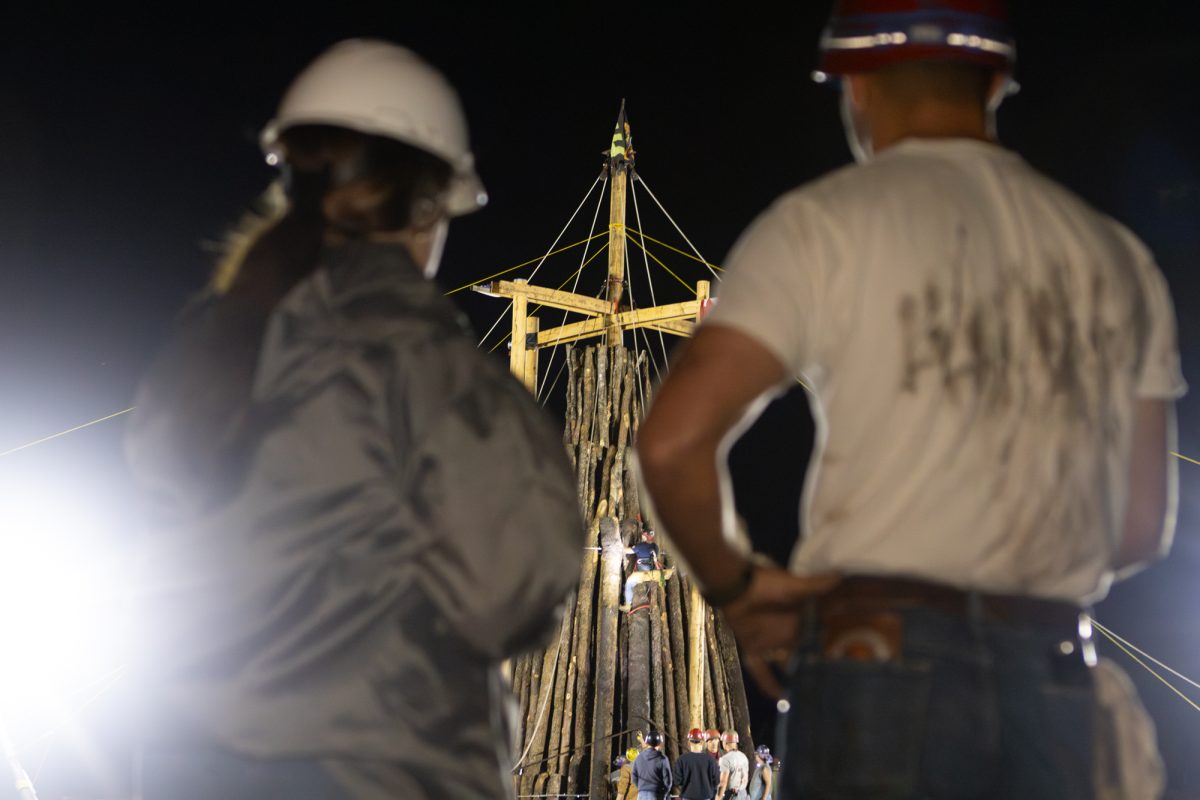

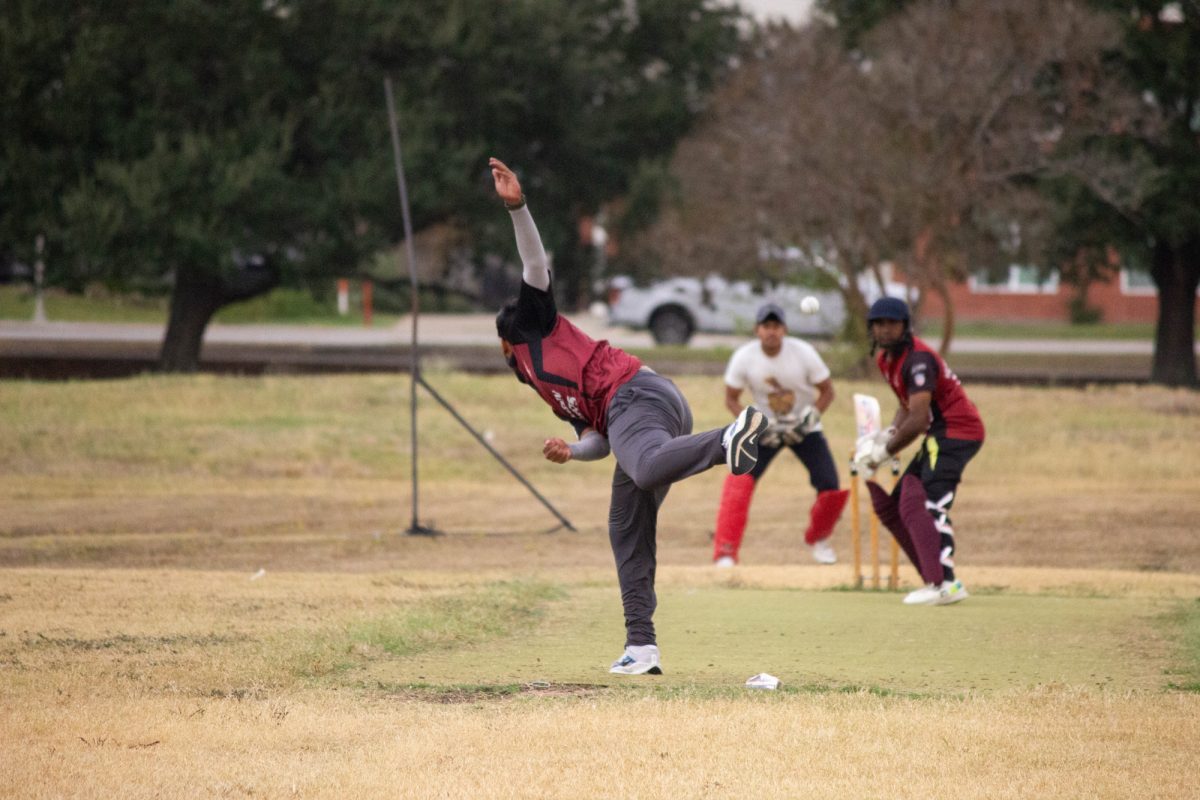
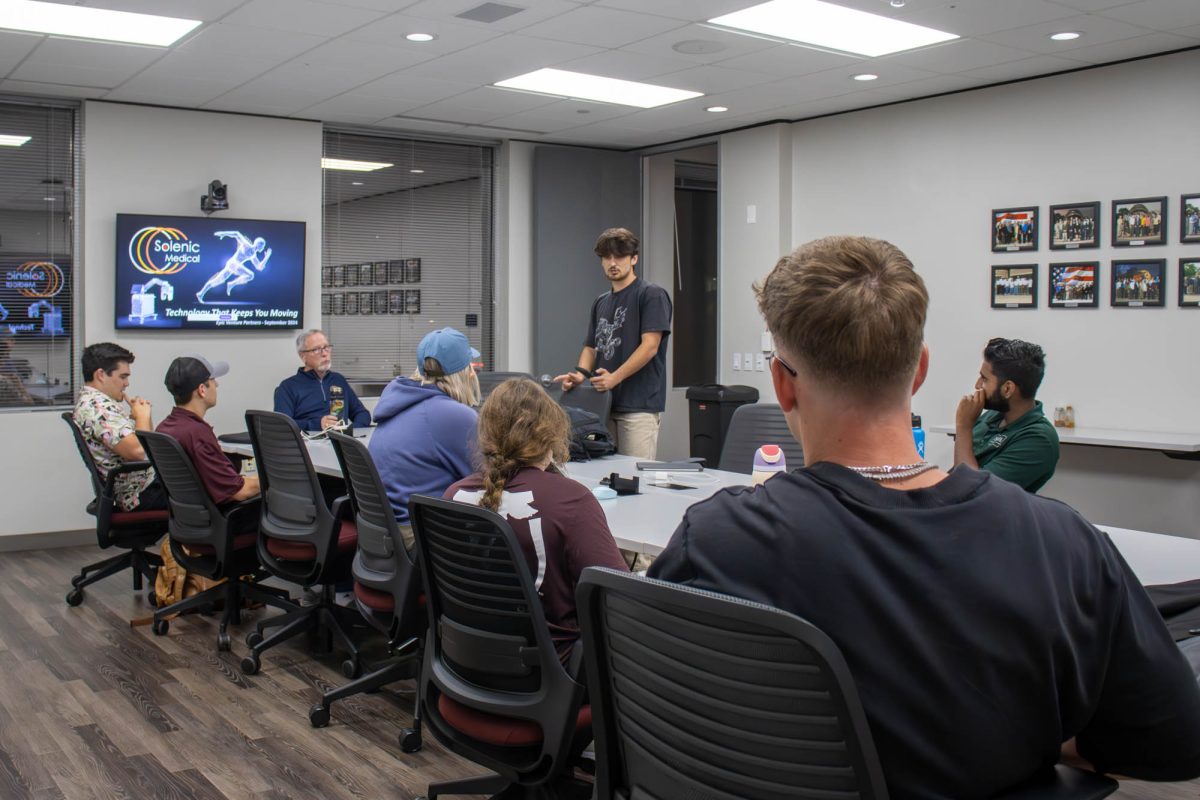
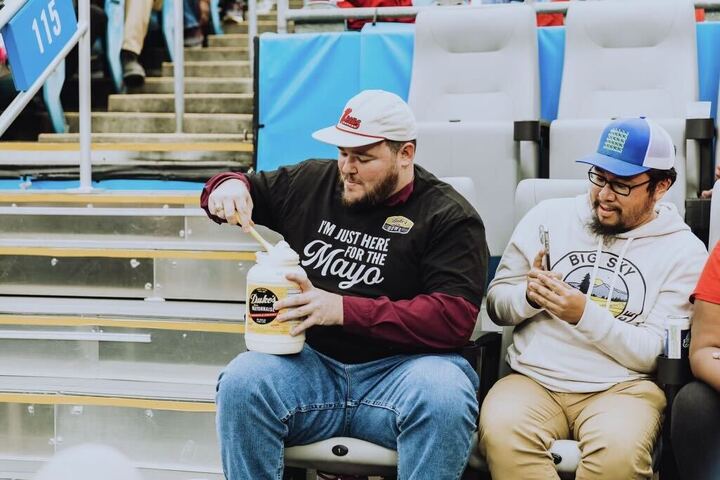

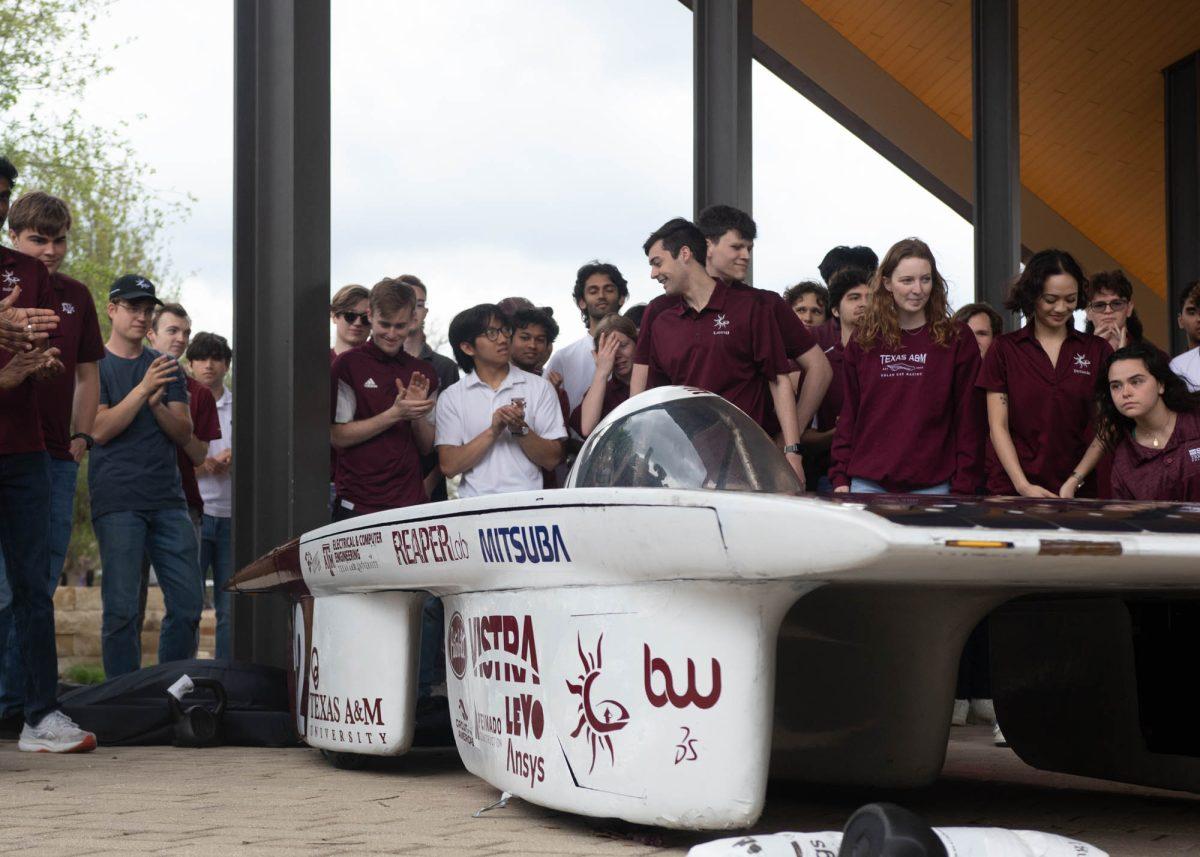
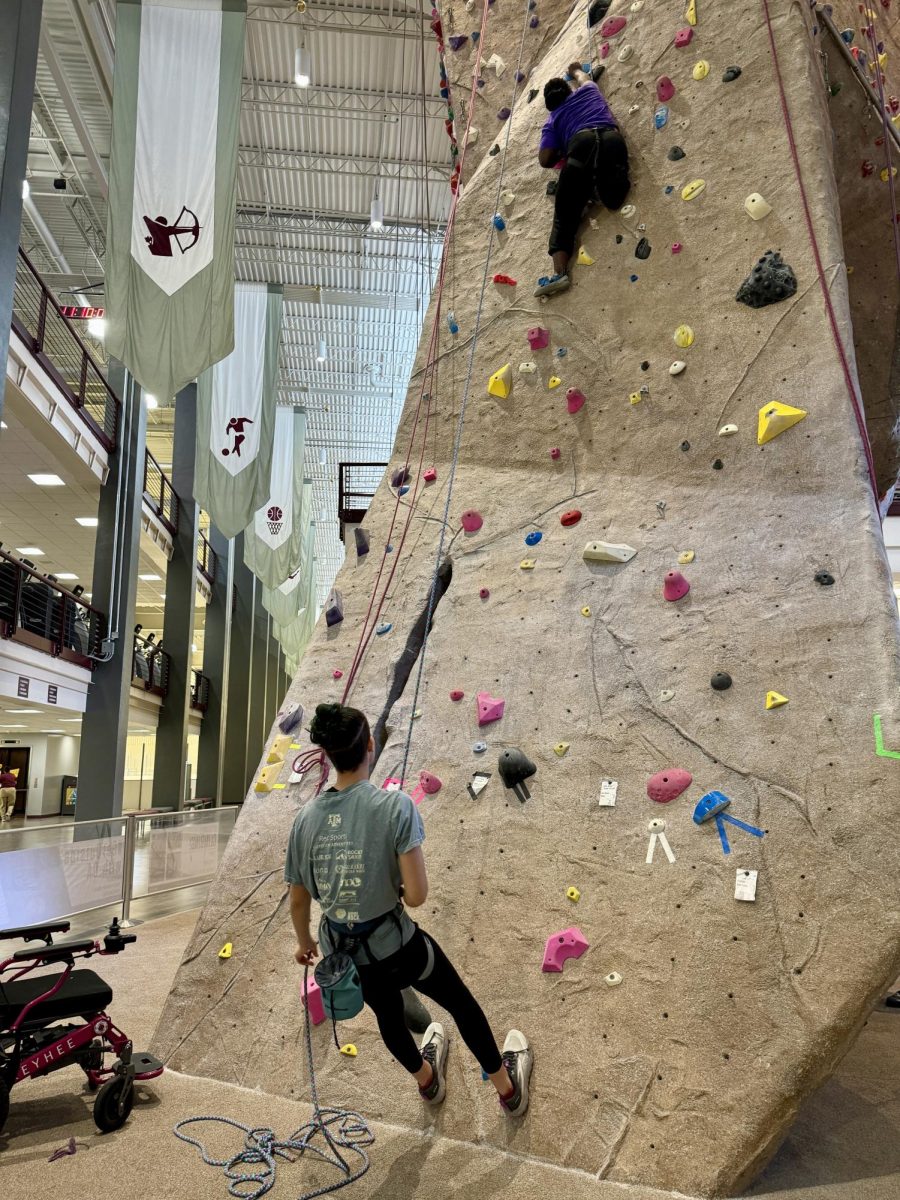
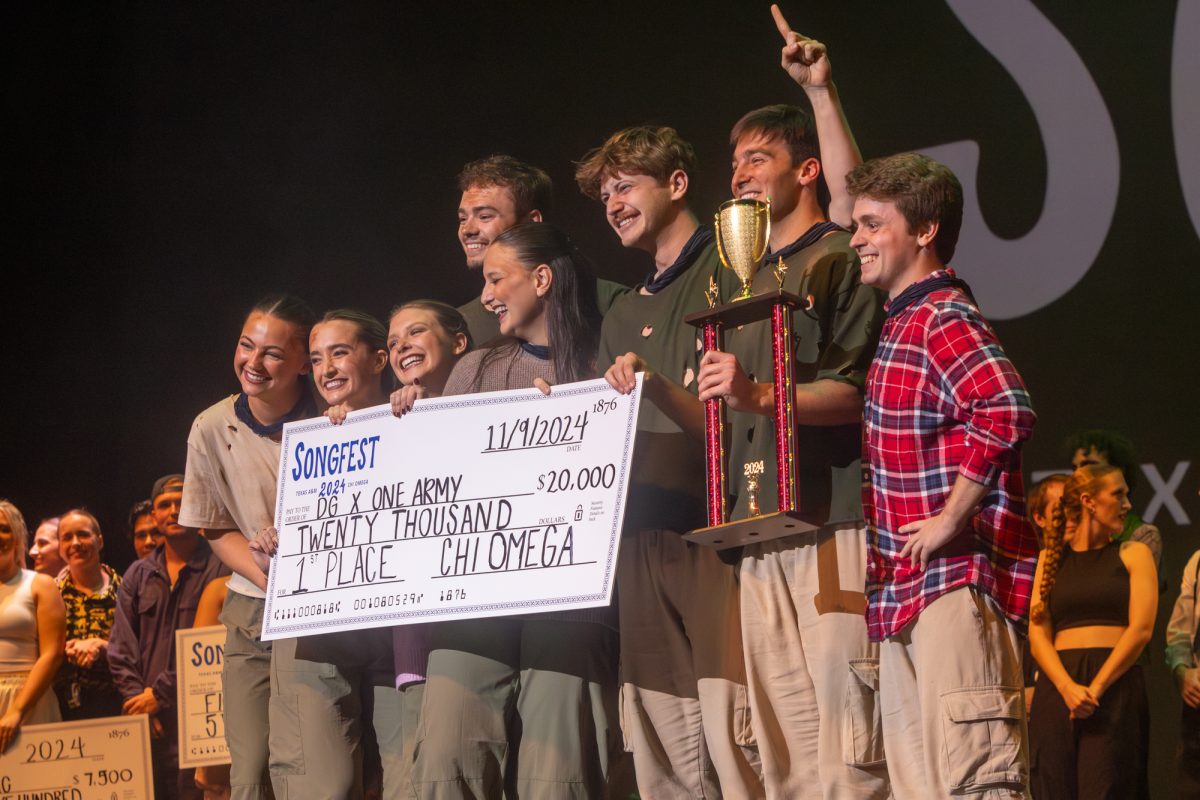
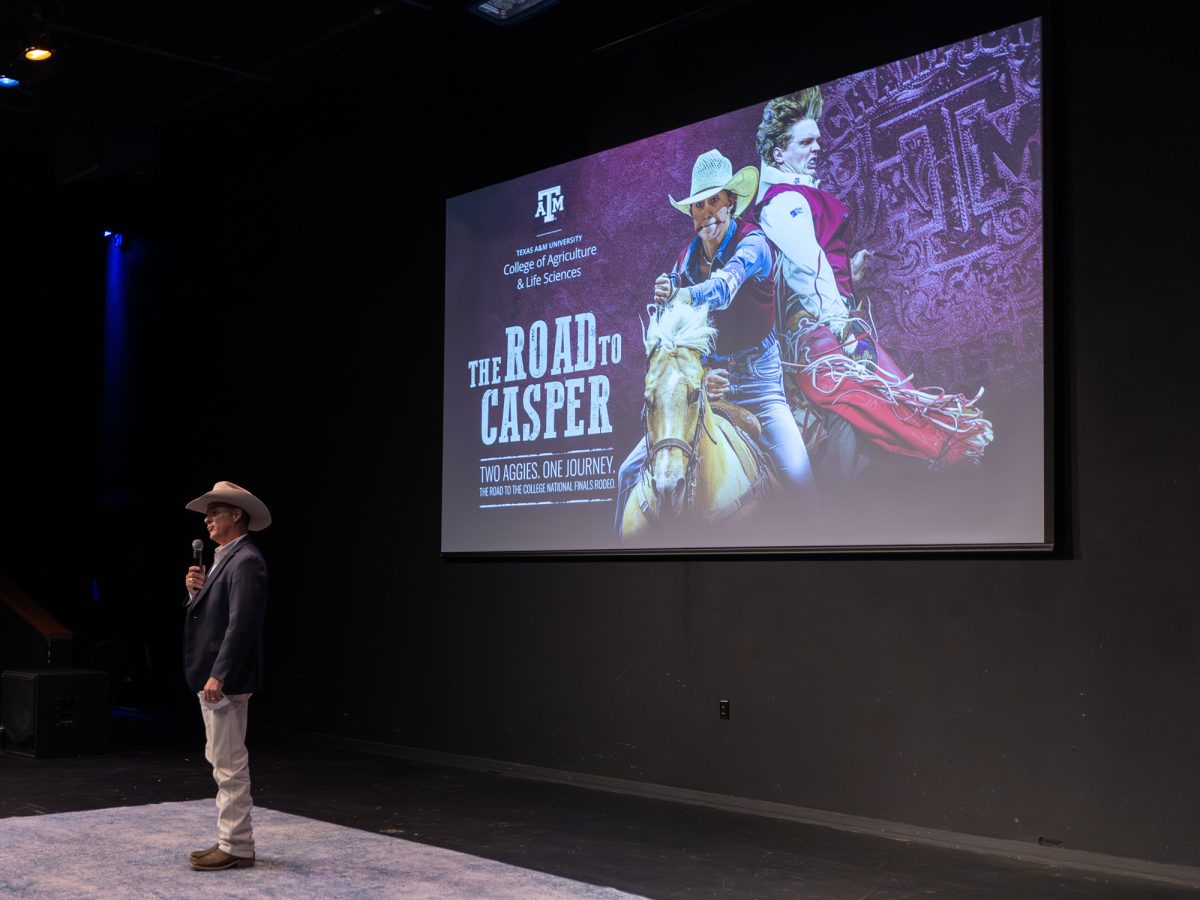
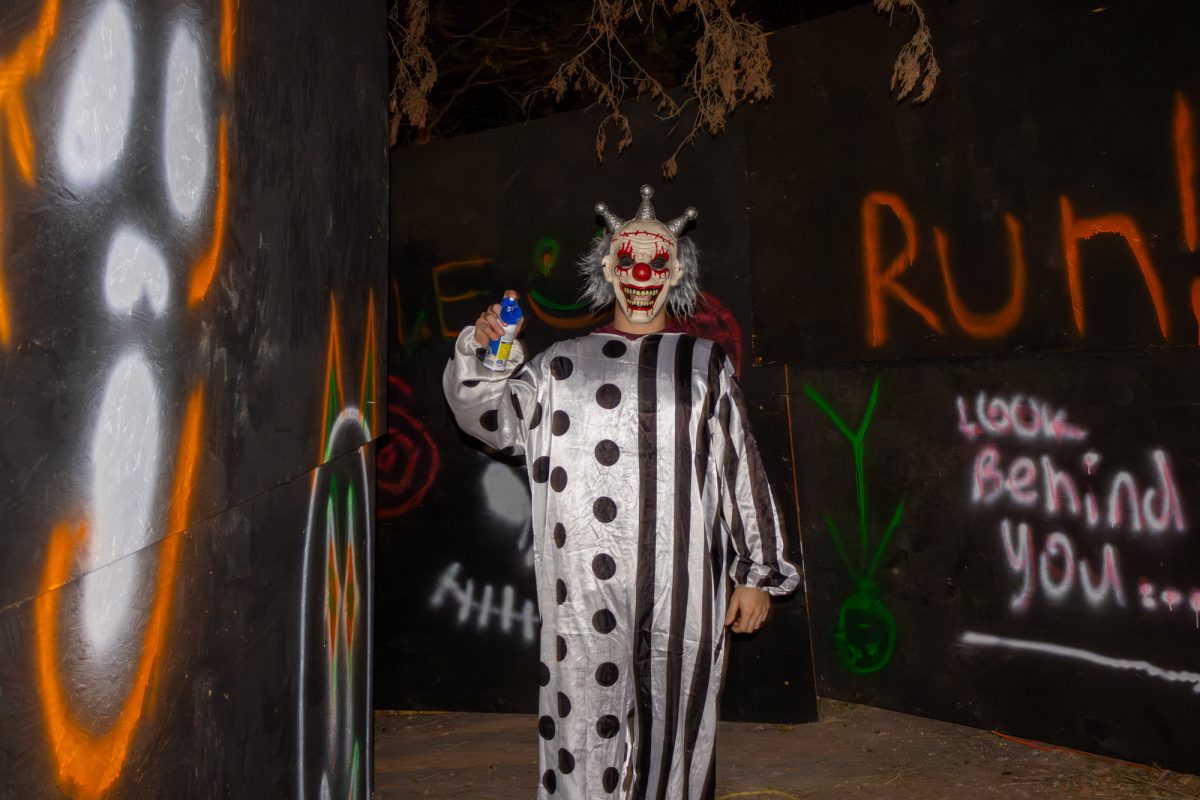
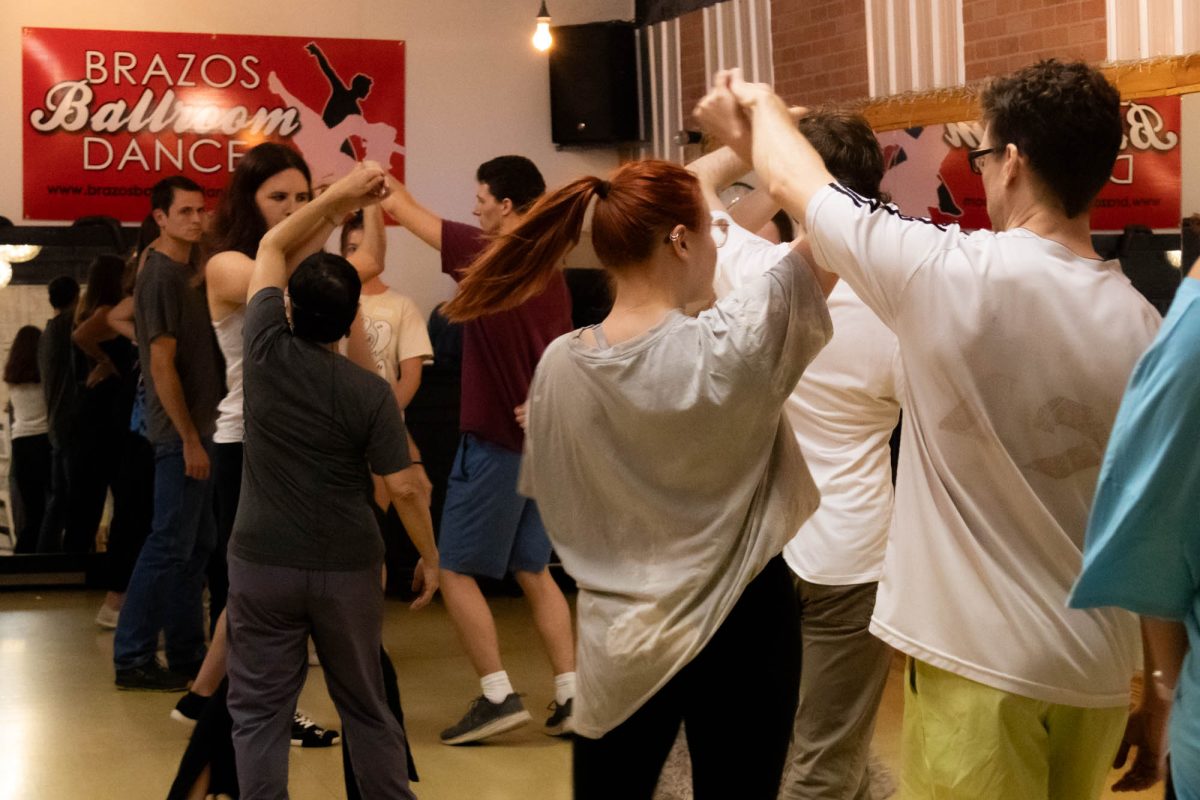

Carl G.Thompson '59 • Nov 15, 2024 at 2:33 pm
THIS ACTIVITY SPEAKS LOUD AND CLEAR “THE AGGIE SPIRIT”
Lina • Nov 14, 2024 at 11:50 am
what a beautiful way to bring people together to celebrate and respect the lives of those lost ❤️